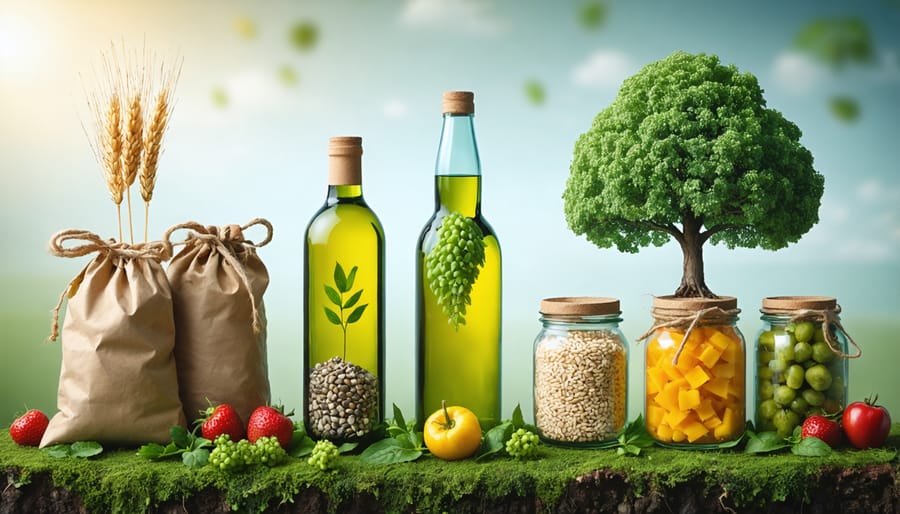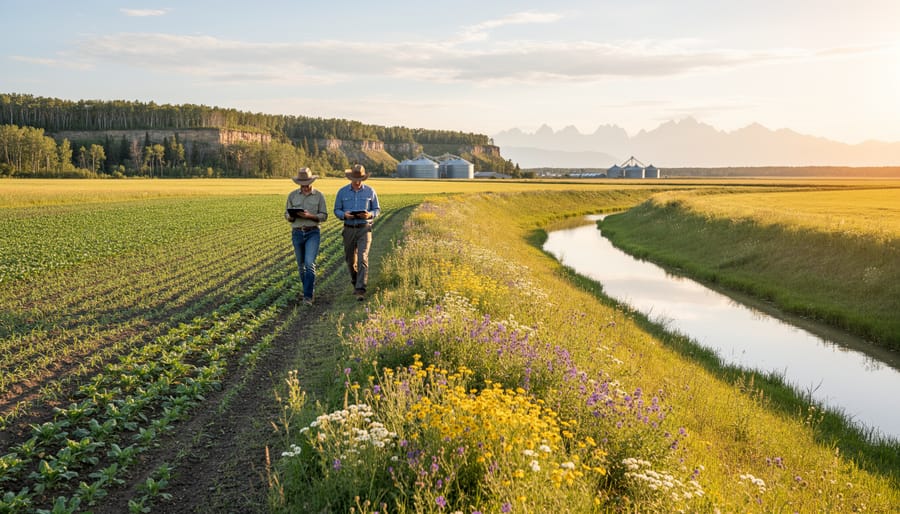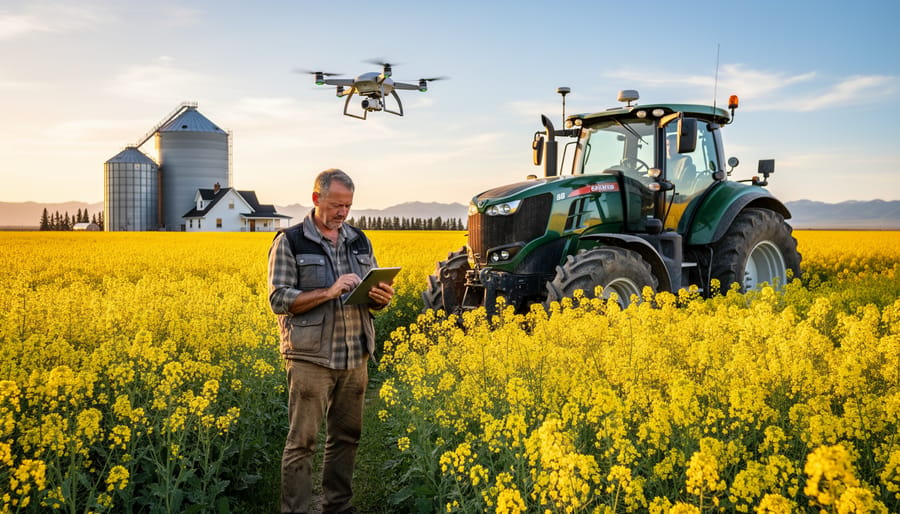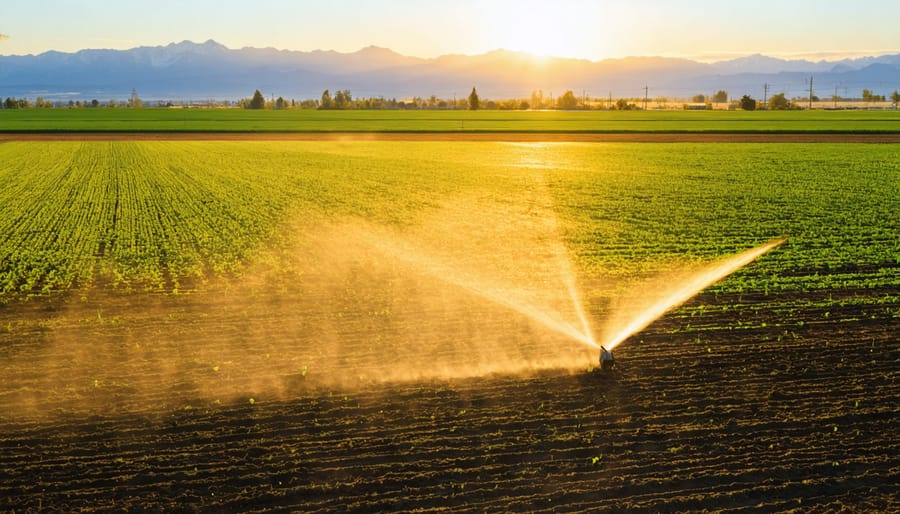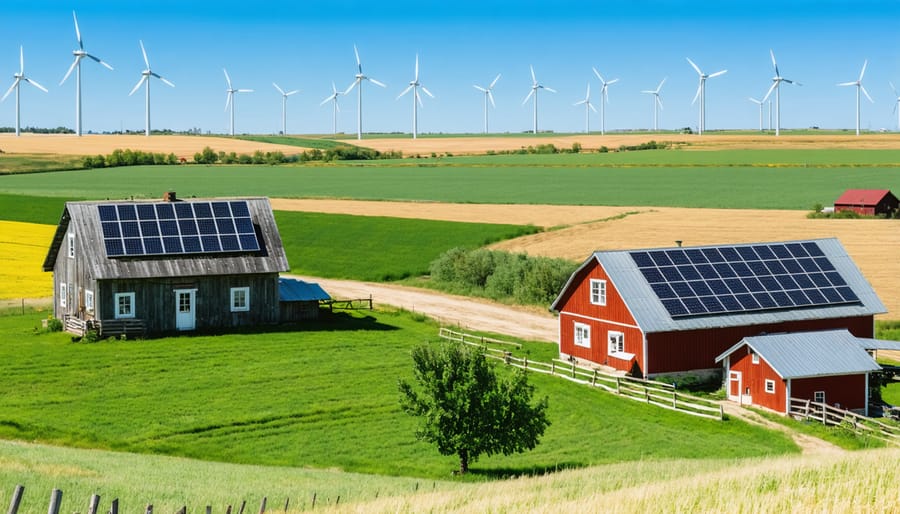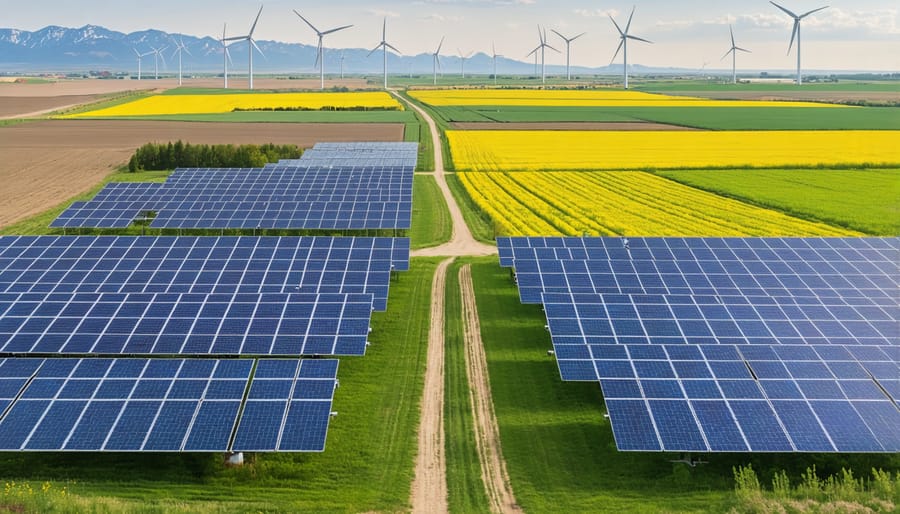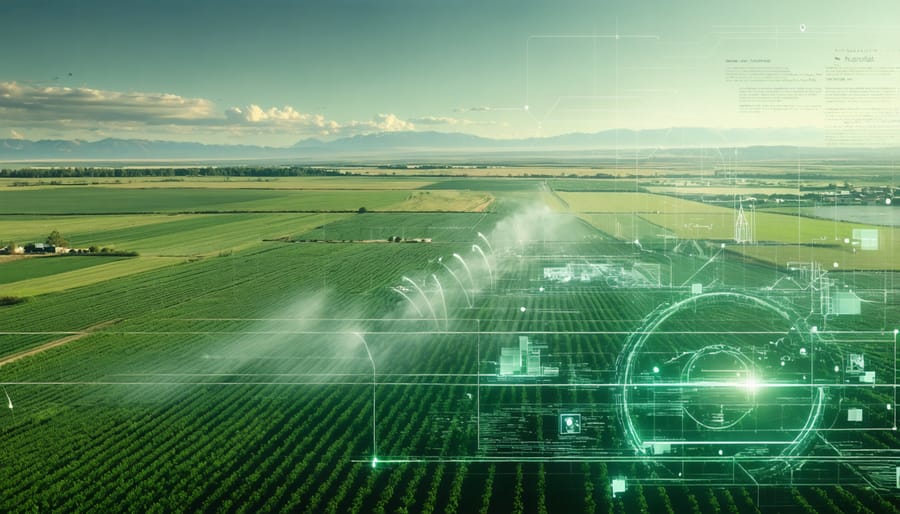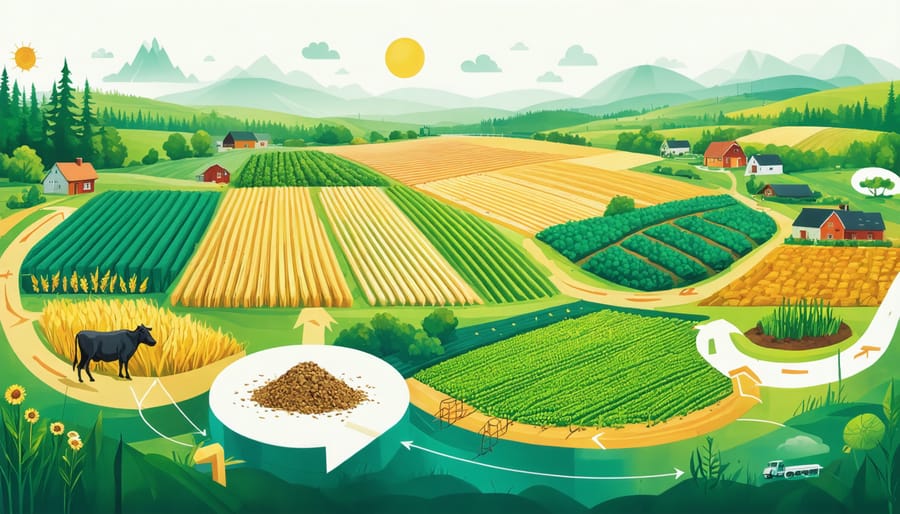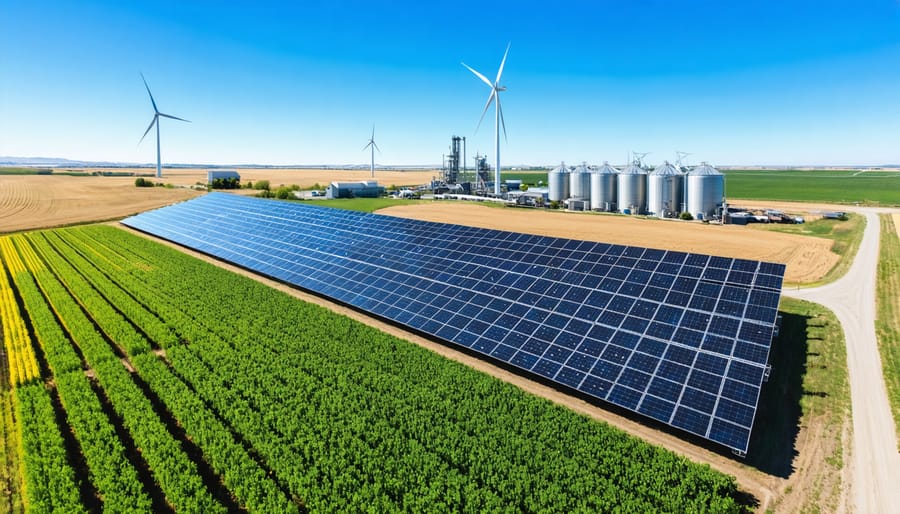Transform raw agricultural products into premium offerings through value-added processing to boost increasing farm profitability by 40-200%. Process grains into specialty flours, cold-press canola into artisanal oils, or convert fruits into preserves and dried products. Leverage Alberta’s strong agricultural infrastructure and growing consumer demand for locally processed foods to capture higher market prices and extend your selling season year-round. Connect with regional food processors, co-packaging facilities, and direct-to-consumer markets to maximize returns while maintaining control over product quality and brand identity. Value-added agriculture represents a strategic shift from commodity production to premium product development, offering Canadian farmers a proven path to sustainable business growth and market differentiation.
Why Value-Added Processing Makes Sense for Alberta Farmers
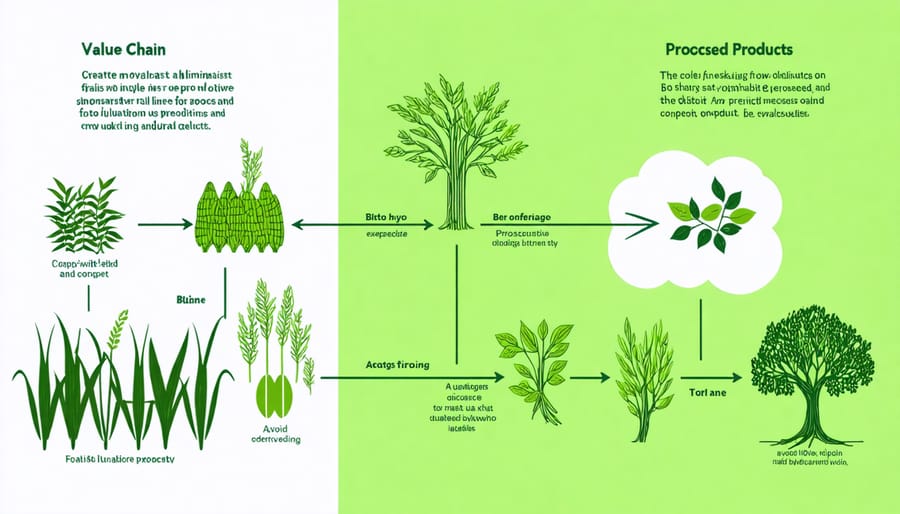
Current Market Demands
Recent market analyses show growing consumer demand for locally processed agricultural products across Canada, particularly in Alberta. Plant-based proteins, specialty flours, and cold-pressed oils are experiencing significant growth, with the market expected to reach $4.5 billion by 2025. Health-conscious consumers are increasingly seeking organic, gluten-free, and minimally processed options.
Small-batch processing and artisanal products command premium prices, with locally produced specialty items selling for 30-40% more than conventional alternatives. There’s particularly strong demand for pulse-based products, ancient grains, and value-added canola products in both domestic and export markets.
Alberta farmers report success with custom-milled flour operations, on-farm cold press facilities, and small-scale processing of specialty crops like hemp and quinoa. Direct-to-consumer sales through farmers’ markets and online platforms have shown remarkable growth, with local food sales increasing by 25% annually since 2020.
Emerging opportunities include plant-based protein concentrates, specialized animal feed products, and functional foods incorporating agricultural by-products. The farm-to-table movement continues to drive demand for traceable, locally processed ingredients.
Economic Impact on Rural Communities
Value-added crops create significant economic ripples throughout rural communities, extending far beyond individual farm gates. In Alberta, processing operations generate an average of 3-5 new jobs for every 100 hectares of value-added production, providing employment opportunities for local residents and attracting skilled workers to rural areas.
These operations often spark the development of supporting businesses, from transportation services to packaging facilities. For example, the successful expansion of cold-pressed canola oil production in Olds, Alberta, led to the establishment of three new agricultural service businesses and a local bottle manufacturing facility, creating 25 new full-time positions.
The increased economic activity also strengthens local tax bases, enabling communities to improve infrastructure and services. Farmers markets and farm-gate sales of processed products encourage agri-tourism, bringing urban visitors to rural areas and fostering connection between producers and consumers.
Moreover, when farmers process their crops locally, more of the product’s final value stays within the community. This economic retention helps sustain local businesses, supports community initiatives, and creates opportunities for the next generation of farmers to build sustainable agricultural enterprises.
Top Value-Added Opportunities for Alberta Crops
Grain and Pulse Processing
Grain and pulse processing represents one of the most lucrative opportunities for Canadian farmers to add value to their crops. By examining successful grain processing operations across Alberta, we’ve seen how traditional commodities can be transformed into premium products.
Flour milling remains a cornerstone of value-added processing, with specialty flours commanding premium prices in both local and international markets. Many Alberta farmers have found success by investing in small-scale mills to produce stone-ground, whole grain, and gluten-free flours from various grains including wheat, rye, and ancient grains like spelt and kamut.
Protein extraction has emerged as another profitable avenue, particularly for pulse crops. Yellow peas, for instance, can be processed into protein isolates used in plant-based foods, commanding prices up to five times higher than raw peas. Local processing facilities are increasingly offering toll processing services, allowing farmers to create value-added products without significant capital investment.
Specialty products like cleaned and packaged ancient grains, sprouted grains, and custom grain blends are gaining popularity among health-conscious consumers. These products often yield margins 200-300% higher than selling raw grain. Starting small with basic cleaning and packaging equipment allows farmers to test markets while minimizing initial investment risks.
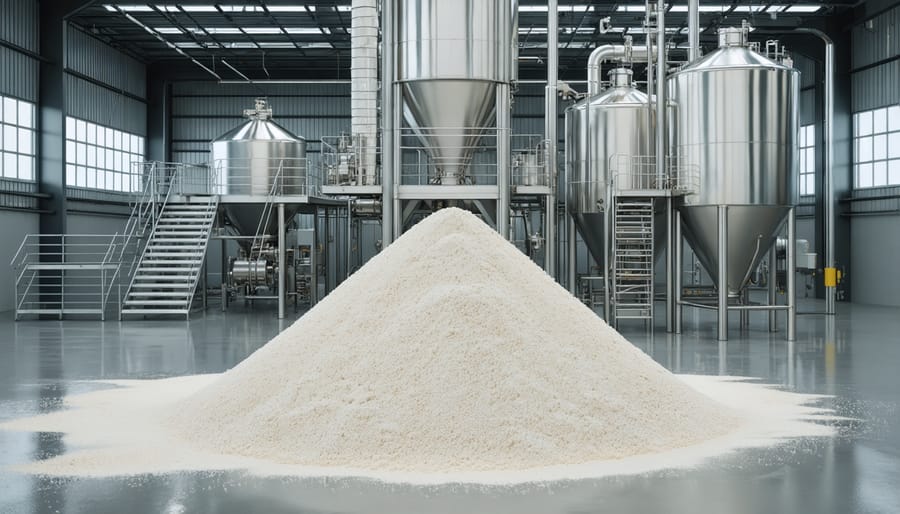
Oilseed Value Addition
Alberta’s oilseed processing sector showcases remarkable success stories in value addition. Take Archer Daniels Midland’s (ADM) canola processing facility in Lloydminster, which processes over 850,000 metric tonnes of canola annually. This facility not only produces cooking oil but also creates high-protein meal for livestock feed, demonstrating how a single crop can generate multiple revenue streams.
In the hemp sector, Canadian Rockies Hemp Corporation in Bruderheim presents an inspiring example of innovation. Their state-of-the-art facility processes hemp straw into fiber products for textiles, building materials, and eco-friendly packaging. What makes this venture particularly noteworthy is their commitment to working directly with local farmers through contract growing arrangements.
Peace Naturals, a family-owned operation near Peace River, has found success in small-scale cold-pressed canola oil production. They’ve carved out a profitable niche by marketing their premium oil directly to restaurants and specialty food stores across Western Canada. Their success demonstrates that value addition isn’t limited to large-scale operations.
These ventures highlight the diverse opportunities available in oilseed processing. Whether through large-scale industrial operations or boutique processing facilities, Alberta farmers are finding ways to capture more value from their crops while contributing to local economic development and sustainable agriculture practices.
Specialty Crop Processing
Specialty crop processing opens up exciting opportunities for Alberta farmers to tap into growing niche markets. By transforming raw agricultural products into unique value-added goods, producers can significantly increase their profit margins while meeting consumer demand for specialty items.
Consider the success of Peace Country Milling in Northern Alberta, where farmers have created a thriving business processing heritage grains into specialty flours for artisanal bakeries. Similarly, several producers in the Lethbridge region have found success processing pulses into protein-rich flour alternatives, capitalizing on the plant-based protein trend.
Popular specialty processing opportunities include:
– Creating cold-pressed oils from canola, flax, or hemp
– Processing pulse crops into flour or protein isolates
– Developing frozen fruit products from saskatoons or haskap berries
– Manufacturing specialty grain products like ancient grain flour blends
– Producing small-batch craft beverages from local ingredients
Before diving into specialty processing, farmers should assess market demand, required equipment investments, and necessary food safety certifications. Starting small with test batches and direct-to-consumer sales can help validate your concept before scaling up. Many successful specialty processors begin by partnering with existing facilities to minimize initial capital costs.
Local food innovation centres and agricultural extension services offer valuable resources and guidance for farmers exploring specialty processing ventures. These facilities often provide access to pilot-scale equipment and technical expertise to help refine products and processes.
Getting Started with Value-Added Processing
Required Infrastructure and Equipment
To process value-added crops effectively, you’ll need appropriate facilities and equipment that meet Canadian food safety standards. At minimum, consider a clean, climate-controlled processing space with proper ventilation and drainage systems. Essential equipment typically includes washing stations, sorting tables, and food-grade storage containers.
For basic processing operations, invest in commercial-grade equipment like industrial dehydrators, freezers, or cold storage units. Many Alberta farmers start with smaller-scale equipment and scale up as demand grows. Consider multi-purpose machinery that can handle various crops to maximize your investment.
Quality control equipment, such as moisture meters and pH testing tools, helps ensure consistent product quality. Don’t forget about packaging equipment – heat sealers, label printers, and appropriate storage solutions are crucial for maintaining product freshness and meeting labelling requirements.
For shared resources, connect with local agricultural co-ops or food processing facilities. Many regions offer access to commercial kitchens or processing facilities that meet federal safety standards without requiring significant upfront investment. This approach allows you to test market demand before committing to major infrastructure expenses.
Remember to account for proper sanitation equipment and waste management systems to maintain compliance with local health regulations.
Regulatory Requirements
In Canada, value-added crop processing must comply with federal and provincial food safety regulations. The Safe Food for Canadians Regulations (SFCR) sets the primary framework for food processing operations, requiring licensing for most value-added activities. Alberta producers should work with the Canadian Food Inspection Agency (CFIA) to ensure compliance and obtain necessary certifications.
For on-farm processing facilities, producers need to meet specific infrastructure requirements, including proper sanitation facilities, food-grade equipment, and designated processing areas. The Alberta Agriculture and Forestry department offers guidance through their Food Safety Division to help farmers navigate these requirements.
Organic certification is another consideration for producers looking to market organic value-added products. This process involves working with accredited certification bodies and maintaining detailed records of production methods and ingredients.
Local health authorities also play a role in monitoring food safety standards. Producers should connect with their regional health inspector early in the planning process to understand specific requirements for their intended value-added operations.
For export markets, additional certifications may be required depending on the destination country. The CFIA provides resources to help producers understand and meet international standards.
Available Support and Resources
Several government agencies and organizations provide valuable financial support programs to help Alberta farmers transition into value-added crop production. The Canadian Agricultural Partnership (CAP) offers grants of up to $50,000 for equipment upgrades and processing facility development. Alberta’s Agriculture Financial Services Corporation (AFSC) provides low-interest loans specifically designed for value-added initiatives.
The Alberta Food Processing Development Centre in Leduc offers crucial technical support and product development assistance. Their facility allows farmers to test new processing methods and develop products before investing in their own equipment. Additionally, Agriculture and Agri-Food Canada’s AgriInnovate program supports the commercialization of innovative agricultural products with funding up to $10 million.
Local agricultural societies and producer associations frequently organize workshops and mentorship programs. These connections can be invaluable for networking and knowledge sharing. The Alberta Agriculture and Forestry department maintains a database of industry experts who provide free consultations to farmers exploring value-added opportunities.
Farmers can also access business planning support through Alberta’s Business Link service, which offers one-on-one coaching and market research assistance. Remember to connect with your local agricultural fieldman, who can direct you to region-specific resources and upcoming funding opportunities in your area.
Environmental Considerations and Sustainable Practices
Reducing Environmental Impact
Alberta farmers are increasingly adopting sustainable farming practices in their value-added processing operations. Installing energy-efficient equipment and LED lighting can reduce electricity consumption by up to 30%. Many local processors are implementing water recycling systems, which can save thousands of litres annually while maintaining strict food safety standards.
Waste reduction strategies are proving particularly effective. Converting processing byproducts into compost or animal feed creates additional revenue streams while minimizing environmental impact. For example, several Lethbridge area farmers are using vegetable processing waste to produce high-quality organic fertilizer.
Solar panel installation is becoming more common in processing facilities across the province, with some operations reducing their carbon footprint by 40-50%. Energy-efficient cold storage solutions, including improved insulation and smart temperature controls, help minimize power consumption while maintaining product quality.
Consider implementing a comprehensive environmental management system that tracks resource usage and identifies areas for improvement. Many Alberta producers have found that these sustainability measures not only benefit the environment but also lead to significant cost savings over time.
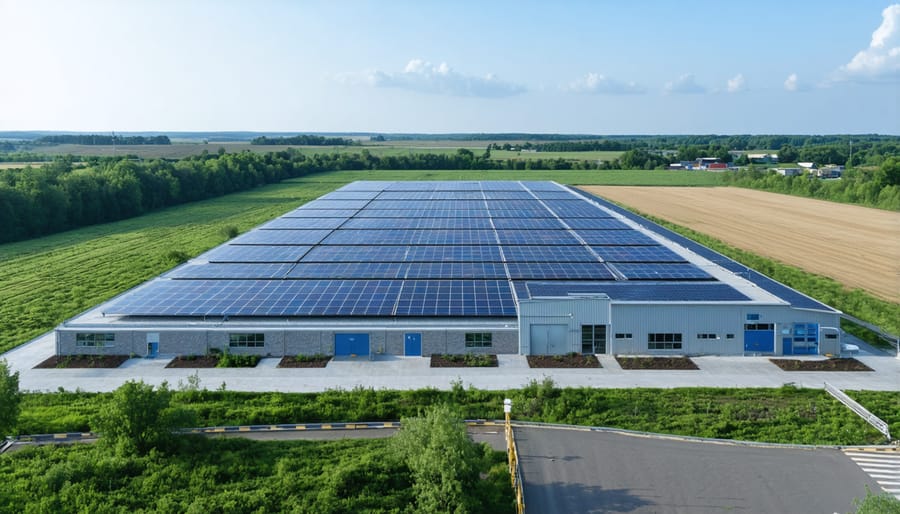
Waste Management Solutions
Effective waste management is crucial for sustainable value-added processing operations. In Alberta, many farmers are turning agricultural byproducts into valuable resources through innovative solutions. For example, vegetable processing waste can be composted and returned to fields as nutrient-rich soil amendments, while fruit pulp from juice processing operations often becomes high-quality livestock feed.
Local success stories include the Taber area sugar beet processors who convert excess pulp into animal feed pellets, creating an additional revenue stream while reducing disposal costs. Similarly, potato processors in southern Alberta work with regional composting facilities to transform peelings and rejected products into organic fertilizers.
To implement effective waste management, consider these practical approaches:
– Partner with local livestock operations for feed opportunities
– Invest in on-site composting systems
– Explore biogas generation from organic waste
– Connect with regional recycling programs
Remember to maintain detailed records of waste volumes and disposal methods to ensure compliance with provincial regulations. Many agricultural extension offices offer guidance on developing waste management plans tailored to specific processing operations.
Value-added crops represent a significant opportunity for Alberta farmers to diversify their operations and increase farm income. By processing raw agricultural products into consumer-ready goods, you can capture a larger share of the food dollar while building resilience into your farming operation. Whether you’re considering starting with simple processing like cleaning and packaging pulses, or planning a more complex venture like creating specialty oils, the key is to start small and scale thoughtfully.
Remember that success in value-added agriculture comes from careful planning, market research, and building strong relationships with both suppliers and customers. Take advantage of local agricultural extension services, connect with experienced producers, and explore available grants and support programs. Your journey into value-added crops isn’t just about individual success—it’s about strengthening our agricultural communities and creating sustainable opportunities for the next generation of Canadian farmers.

